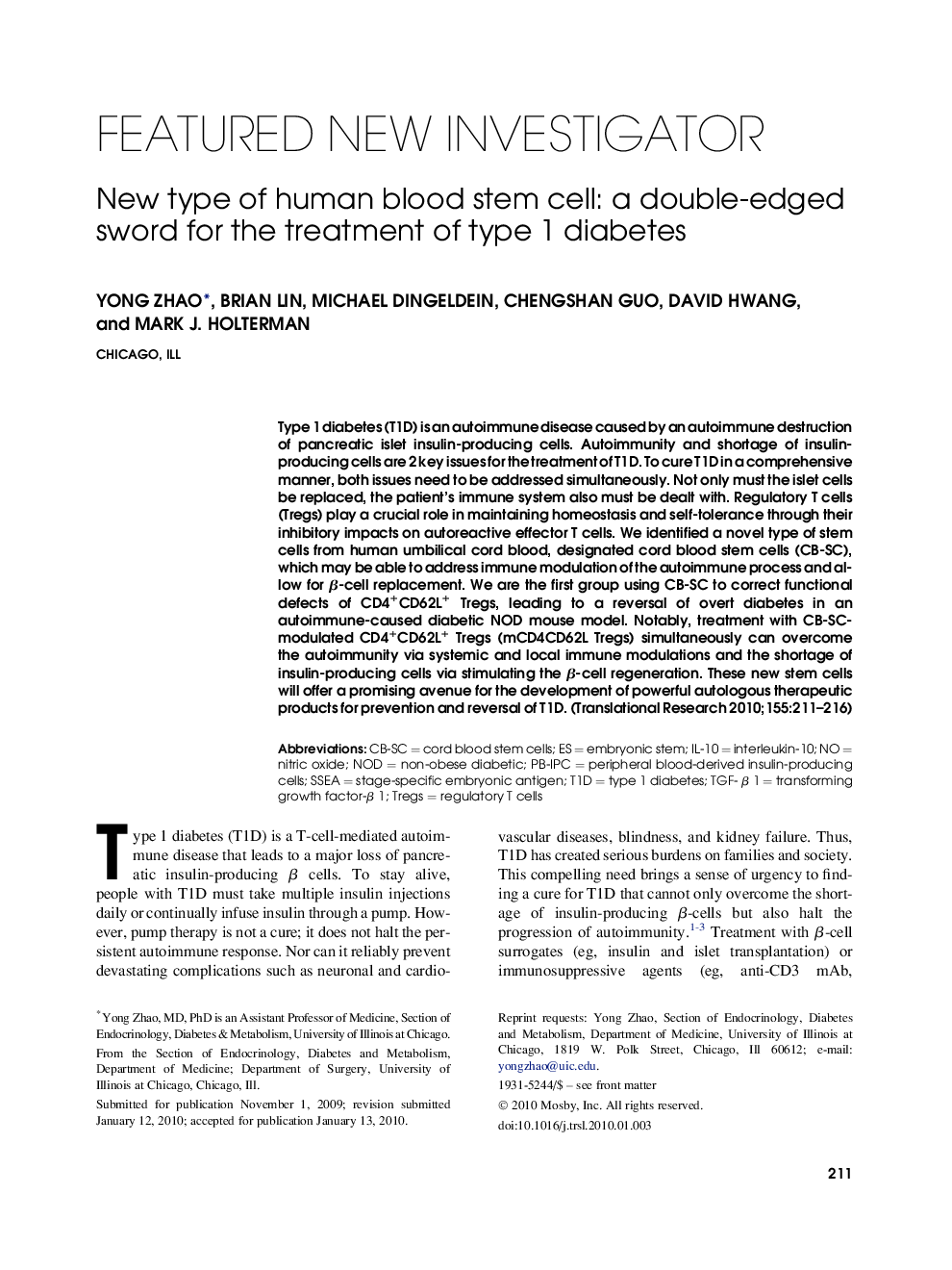| کد مقاله | کد نشریه | سال انتشار | مقاله انگلیسی | نسخه تمام متن |
|---|---|---|---|---|
| 3841458 | 1247981 | 2010 | 6 صفحه PDF | دانلود رایگان |

Type 1 diabetes (T1D) is an autoimmune disease caused by an autoimmune destruction of pancreatic islet insulin-producing cells. Autoimmunity and shortage of insulin-producing cells are 2 key issues for the treatment of T1D. To cure T1D in a comprehensive manner, both issues need to be addressed simultaneously. Not only must the islet cells be replaced, the patient's immune system also must be dealt with. Regulatory T cells (Tregs) play a crucial role in maintaining homeostasis and self-tolerance through their inhibitory impacts on autoreactive effector T cells. We identified a novel type of stem cells from human umbilical cord blood, designated cord blood stem cells (CB-SC), which may be able to address immune modulation of the autoimmune process and allow for β-cell replacement. We are the first group using CB-SC to correct functional defects of CD4+CD62L+ Tregs, leading to a reversal of overt diabetes in an autoimmune-caused diabetic NOD mouse model. Notably, treatment with CB-SC-modulated CD4+CD62L+ Tregs (mCD4CD62L Tregs) simultaneously can overcome the autoimmunity via systemic and local immune modulations and the shortage of insulin-producing cells via stimulating the β-cell regeneration. These new stem cells will offer a promising avenue for the development of powerful autologous therapeutic products for prevention and reversal of T1D.
Journal: Translational Research - Volume 155, Issue 5, May 2010, Pages 211–216